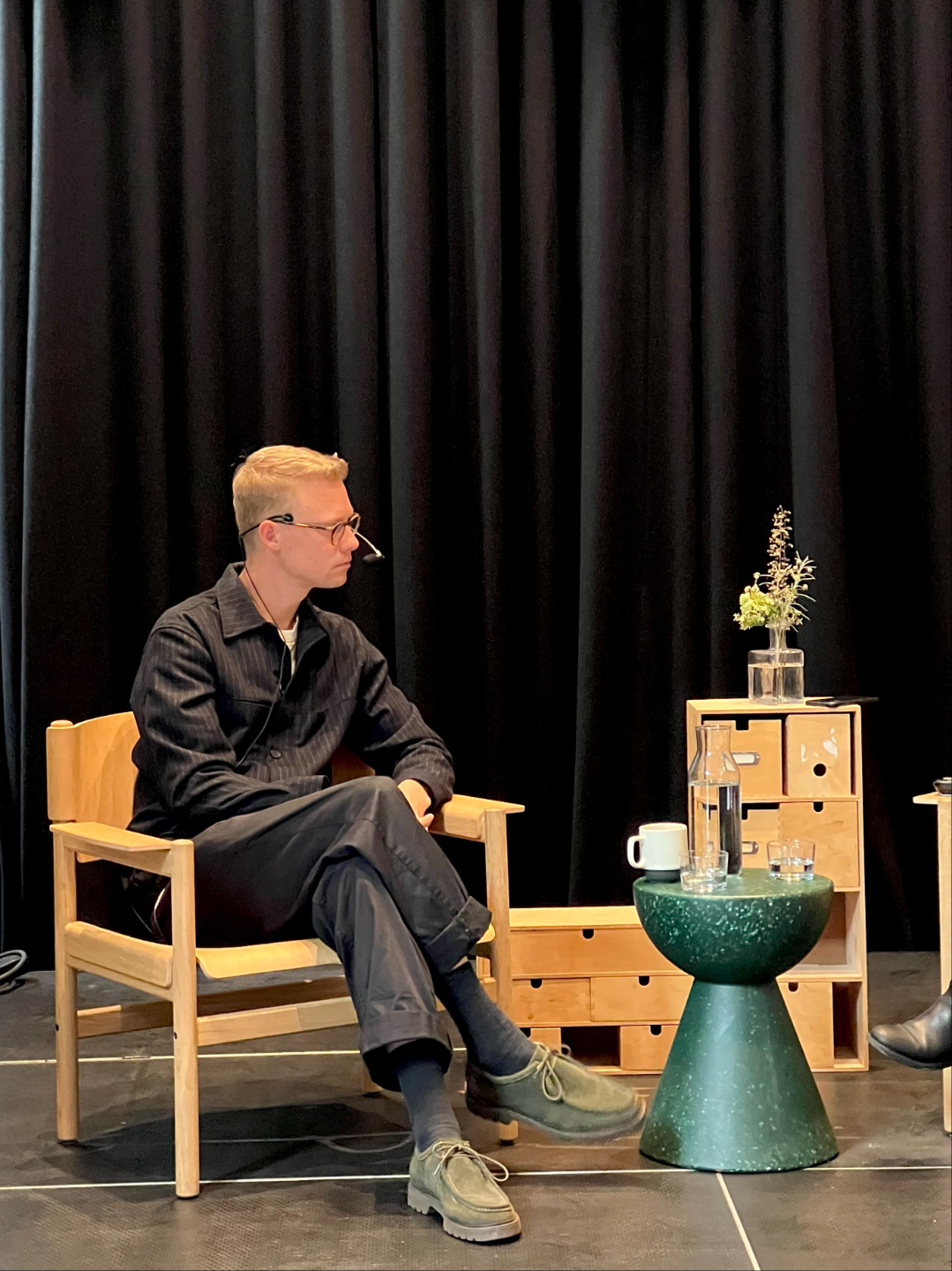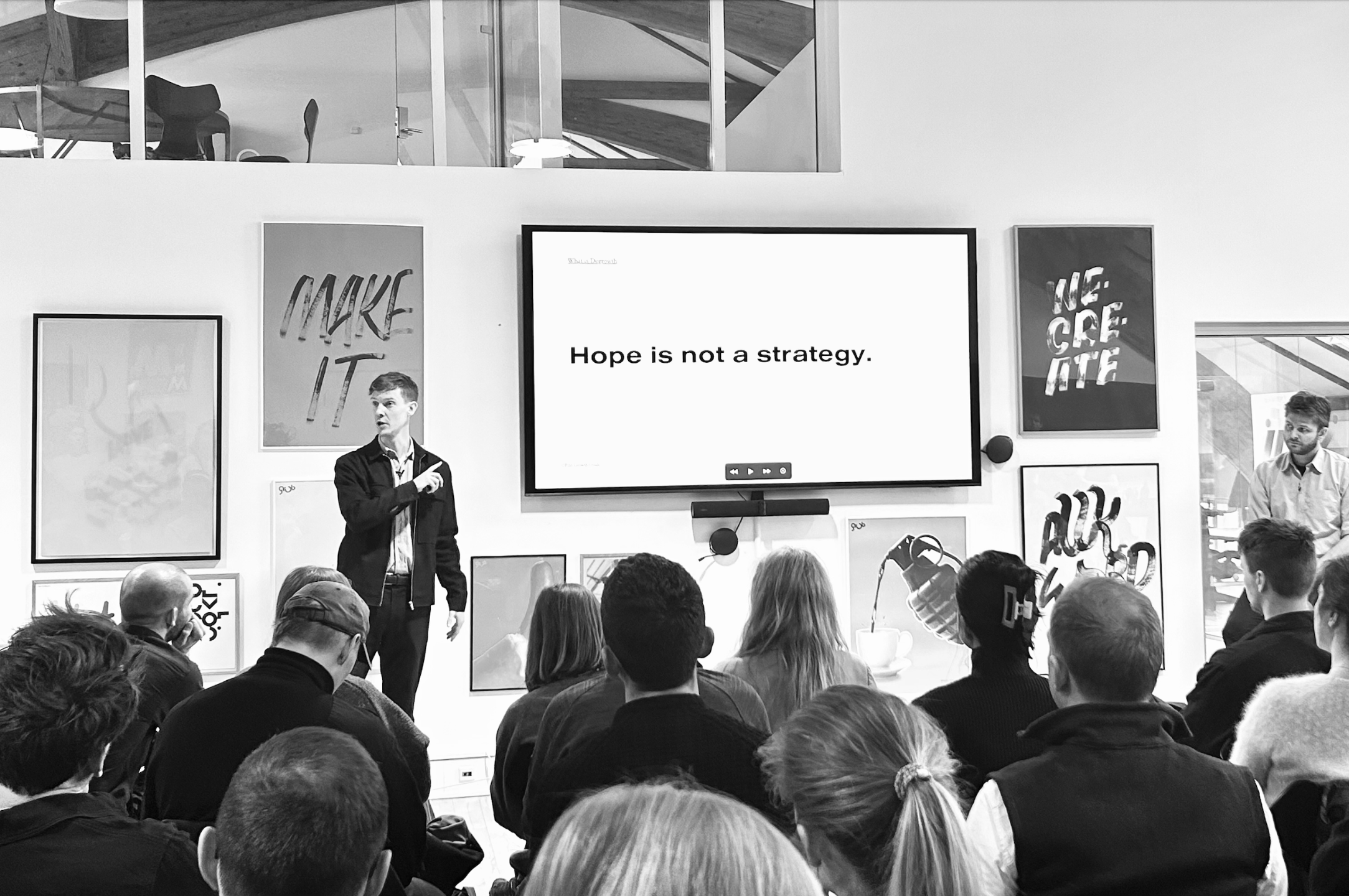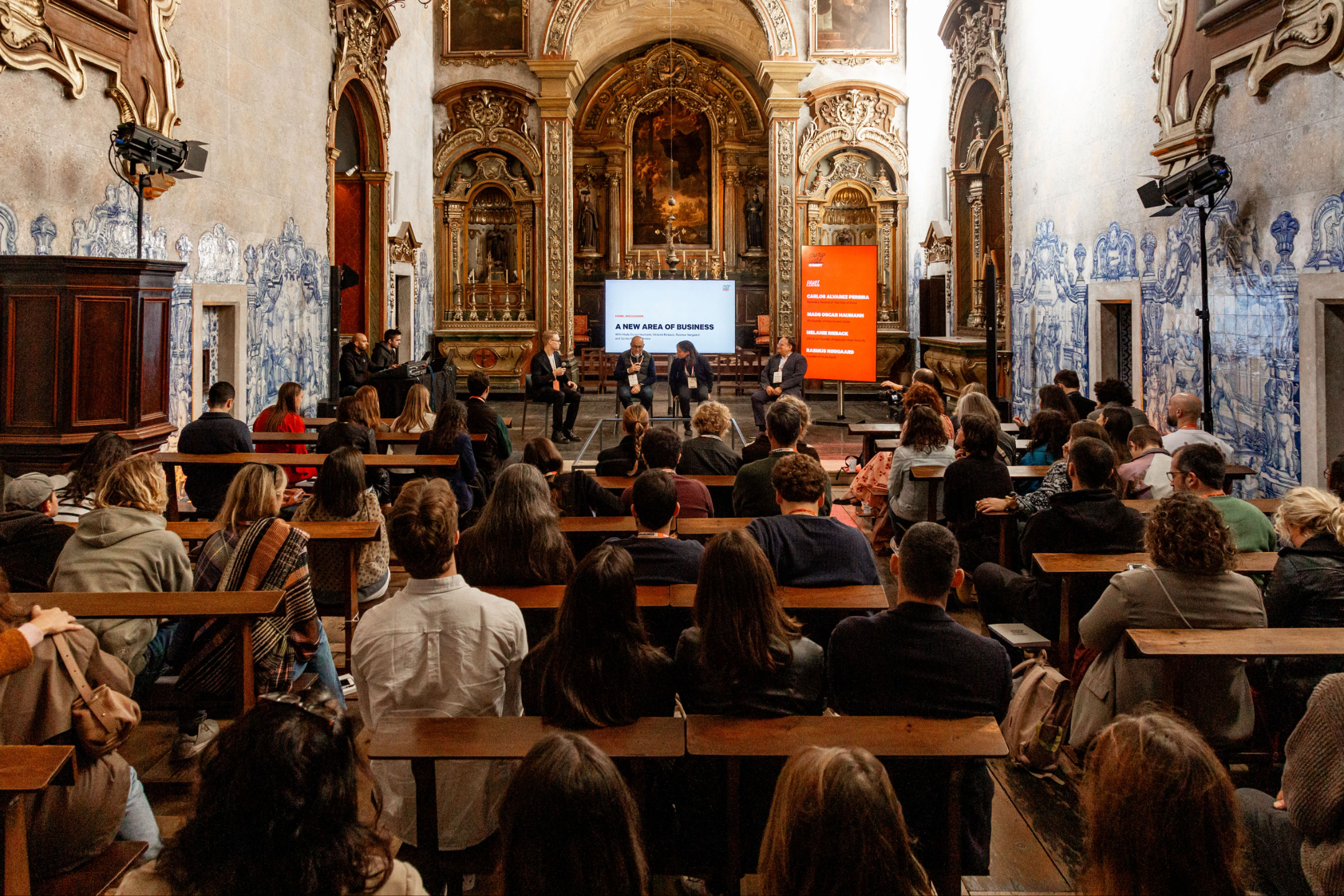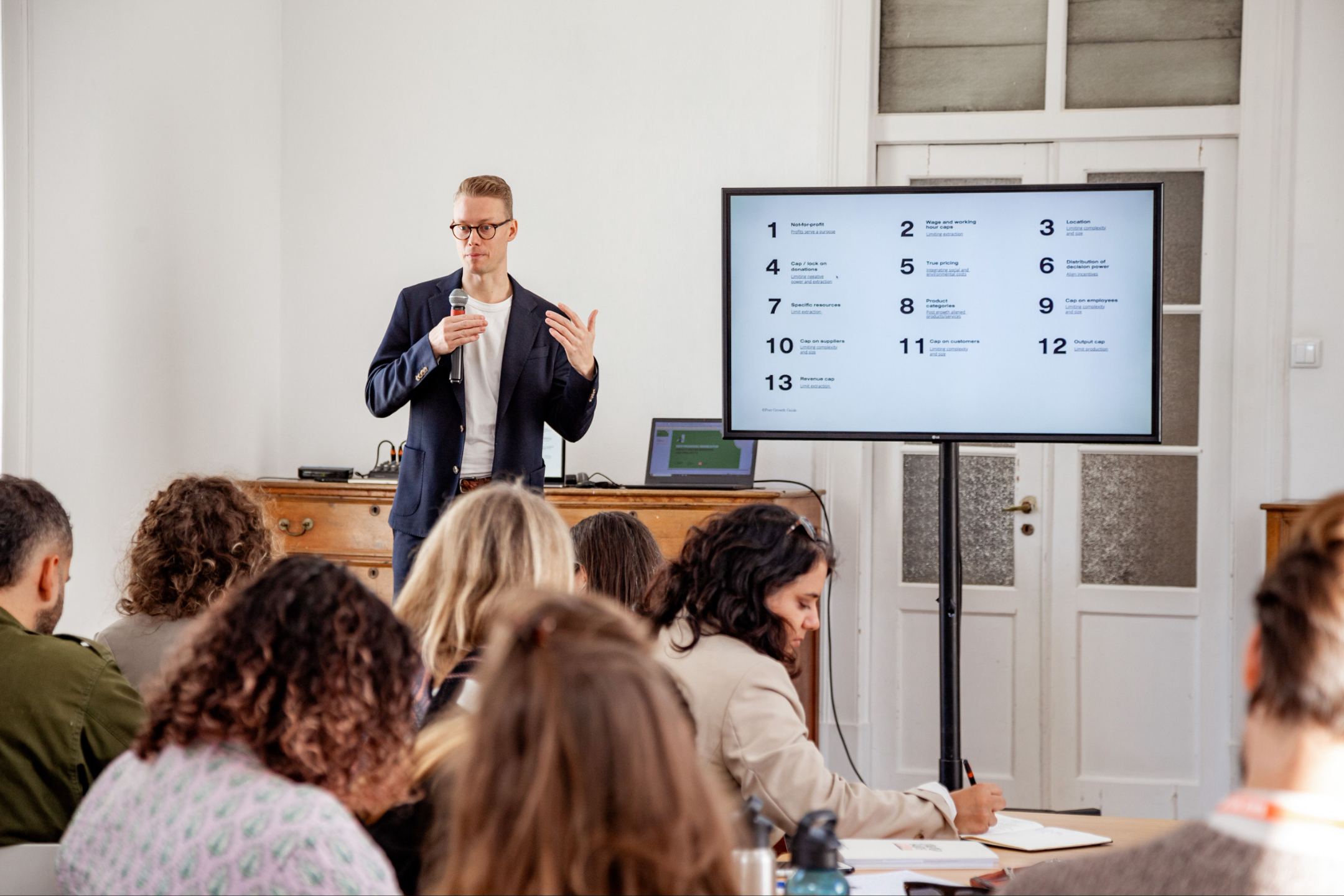Book a talk about the Economies of Small
Beth Thoren, Director of Environmental Action, Patagonia
To bring us up to speed on the post-growth debate coming to the fore, we asked Marcus and Oscar to develop an immersive session for our team on what post-growth is, why it’s needed and what ways it might be applied at a business level. We were impressed at the consideration that went into this. They provided a thorough evidence base for theories, brought ideas to life and made them as practical as possible through numerous real-life examples. They challenged us to think deeply about our own assumptions and we now have a syllabus of material to continue our learning. We’d like to thank them for an enriching experience and expanding our thinking on this subject.
Book a talk by dropping us an email at [email protected]
The Economies of Small
In this talk, Marcus Feldthus and Oscar Haumann present the theory and method behind the concept: Economies of Small. Based on research and concrete business examples, they show how self-limitation can be used as a strategic tool to accelerate a radical green transition.
The talk is structured in three parts:
1. The big picture: Why our current strategies fail, and what the alternatives are.
2. The theory: The four Economies of Small.
3. The method: How to define and protect boundaries, and how to achieve the Economies of Small.
How Companies Scale Their Positive Impact Without Growth
This talk, presents eight concrete strategies for scaling a company’s positive impact. Drawing on a series of inspiring cases, they show how both small and large companies can create real change by implementing other scaling strategies.
The talk provides:
1. A brief introduction to why the pursuit of endless growth undermines companies’ ability to be a real part of the solution in the green transition.
2. An overview of the most promising alternatives to growth.
3. Concrete examples of companies that succeed.
The Experiences Behind the Book, Economies of Small
Behind the theory and the method for working with the Economies of Small lie 10 years of experiences, experiments and conversations.
In this personal format, Marcus and Oscar tell the story of the events that led them to write the book. And further, from the first ideas to the final book. Along the way, they share their biggest highs and lows as well as their most important insights from running a company together for 10 years, while unfolding the book’s three parts: The big picture, the theory and the method.
This format provides more space for anecdotes, reflection and even more dialogue with the audience.









